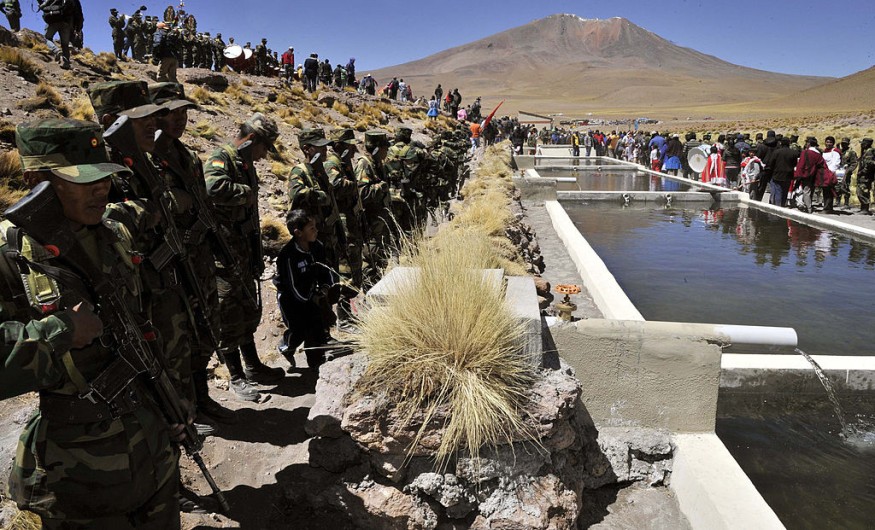Chile and Bolivia Agree to Manage Silala River Cooperatively, International Court of Justice Says

The International Court of Justice on Thursday declined to issue a decision on a long-running dispute over the Silala River that flows from Bolivia to Chile as both countries mostly resolved their issues during the proceedings.
In its judgment, the United Nations court noted that the two Latin American countries appeared to agree to the river's status as "an international watercourse," subject to international law, and cooperate on river protection.
According to Associated Press, American judge Joan E. Donoghue, the court's president, said both sides have come to accept that the small river is an international watercourse that should be managed cooperatively.
After both countries agreed on how the water should be managed, Donoghue then directed Chile and Bolivia to "conduct consultations on an ongoing basis, in a spirit of cooperation."
"Shared resource can only be protected through cooperation," the judge noted. The Silala River flows eight kilometers from Bolivia's high-altitude wetlands into Chile's Atacama desert.
According to Al Jazeera, the dispute between the two countries over the river stretches back to 1999, when Bolivia rejected the designation of Silala as an international watercourse, saying it lacked "any characteristic of a river, let alone of an international river of a successive course," and described it as a wetland.
Chile brought the claim to the Hague-based court in 2016, claiming that Bolivia violated international water laws by blocking the river's flow.
During the court proceedings in April, Bolivia argued that the stream was not a river but a set of "artificially enhanced" springs pushed above ground by Chilean construction.
According to a 1997 U.N. convention on the non-navigational uses of international watercourses, countries whose borders intersect major waterways must share the natural resource equally.
READ NEXT : Chile Issues Its First Gender-neutral ID Card
Long-time Dispute Between Chile and Bolivia
Bolivia had already broken diplomatic ties with Chile in 1978 when attempts to gain access to the sea failed. Nearly a century earlier, Bolivia had become landlocked during the so-called War of the Pacific, when Chile won over Bolivia and Peru to acquire disputed territories along the country's borders.
Bolivians have long been concerned about ocean access, and in 2013, it filed international proceedings against Chile over the issue. The International Court of Justice ruled in favor of Chile in 2018.
According to Al Jazeera, Bolivia and Chile have also been at odds over using the shared Lauca River, which originates in Chile and empties into Bolivia's Coipasa Lake.
Bolivia has not always been broken off from the ocean. It only lost its coastline to Chile in a war between 1879 and 1883 and has been dissatisfied with the outcome ever since.
Chile and Bolivia Dispute Over Silala River Finally Ended
After Thursday's ruling, Chile's President Gabriel Boric told reporters at the La Moneda presidential palace in Santiago that the decision had given Chile the necessary legal security. The decision, according to Boric, validated the Silala River's status as an international waterway subject to international law.
"Chile went to the court for judicial certainty and got it," Boric noted.
On the other hand, Rogelio Mayta, Bolivia's minister of international affairs, noted that the decision gave Bolivia the right to use the Silala River reasonably and acceptably.
In a statement, Mayta said: "The controversy over nature and use of the Silala river's waters has concluded." Mayta noted that Bolivia will now exercise its rights over the river's waters based on the ruling.
This article is owned by Latin Post.
Written by: Bert Hoover
WATCH: ICJ Issues Ruling on Chile-Bolivia Dispute Over Silala River - From TeleSUR English
Subscribe to Latin Post!
Sign up for our free newsletter for the Latest coverage!
© 2026 Latin Post. All rights reserved. Do not reproduce without permission.













